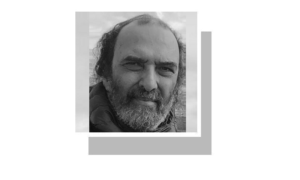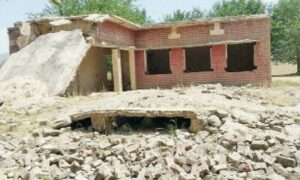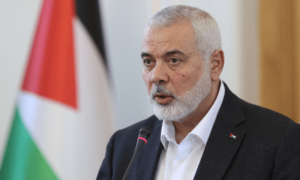KARACHI:
For a disgruntled person exhausted by the hassles of everyday life, the ability to sit and walk with ease might never come across as a blessing yet for patients with spinal cord injuries struggling to access treatment at public hospitals, the overwhelming sense of helplessness accompanying their disability, both literally and figuratively, is enough to trivialize any other feeling of despair.
For instance, Amber, who injured her spinal cord during a motorcycle accident, lost the ability to walk for a whole year since the shortage of adequate treatment facilities at public hospitals led to delays in her surgeries. “There is a large influx of patients in the brain and spine departments of government hospitals hence the dates for surgeries are constantly delayed,” lamented Amber, who eventually had to get her surgeries done at a private hospital costing her at least Rs1 million.
Similarly, Rukhsana, another patient, was consistently denied treatment for her spinal pain at both the Civil and Jinnah hospitals due to the heavy influx of patients, “After three months, I decided to consult a neurosurgeon at the Dow University of Health Sciences, who diagnosed tuberculosis in my spine, which required a three hour long surgical intervention,” recalled Rukhsana.
Professor Dr Junaid Ashraf, a senior neurosurgeon, who also happened to be Rukhsana’s doctor, revealed that the number of patients with spinal ailments had increased by 30 to 35 per cent during the recent few years. “Traffic accidents, wrong sitting postures, and lack of exercise are some of the reasons behind pain in the spine, which arises due to some issue with the discs located between L1 and L5. Unfortunately, there is a shortage of specialist spine surgeons in Pakistan,” claimed Dr Ashraf.
“Only 15 neurosurgeons are available across eight teaching hospitals across Sindh, including Karachi, where almost every day more than 1000 patients require spinal treatment. If there is a gap between the discs, the disc slips, and puts pressure on any nerve tissue. Due to this, the blood flow is restricted, and the hands and feet become numb. We first try to treat the issue with drugs but if it is diagnosed in the CT scan and MRI that the spinal cord is being pressed and the nerve tissue is being affected due to the slipped disc, then surgery is the ultimate choice. A surgery takes at least 6 hours and the patient is instructed to walk the next day. More than 100 cases of spinal injuries have risen due to traffic accidents. If a timely operation is not performed, 10 per cent of these patients will be forced to live a life of disability,” warned Dr Tanveer Ahmed, a neurosurgeon at the Jinnah Hospital.
According to sources of the Express Tribune, no neurosurgeons are available across district hospitals including Sindh Government New Karachi Hospital, Sindh Government Qatar Hospital, Sindh Government Korangi Hospital, Sindh Government Saudabad and Sindh Government Ibrahim Hydari Hospital in Karachi.
The situation across the rest of the country was not any better either, as Dr Abdul Sattar Hashim, former Head of the Department of Neurosurgery at the Jinnah Hospital, revealed that only around 500 neurosurgeons were available across Pakistan for performing spinal surgery. “Different types of spinal problems including spinal cancer, spinal tumours, spinal disc dislocation and other injuries require surgical treatment, which is often very complex and time consuming,” explained Dr Hashim.
Dr Sabir Memon, Director at the Civil Hospital Trauma Centre disclosed that 10 to 12 patients were reported daily for spinal cord issues requiring surgery, with more than 117 neurological surgeries performed each month.







